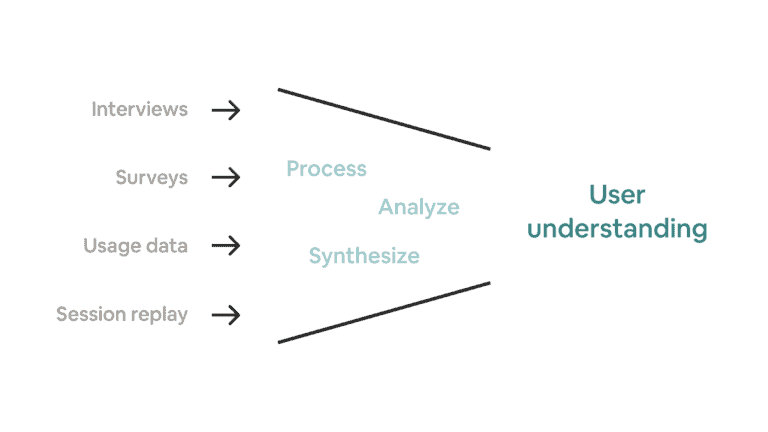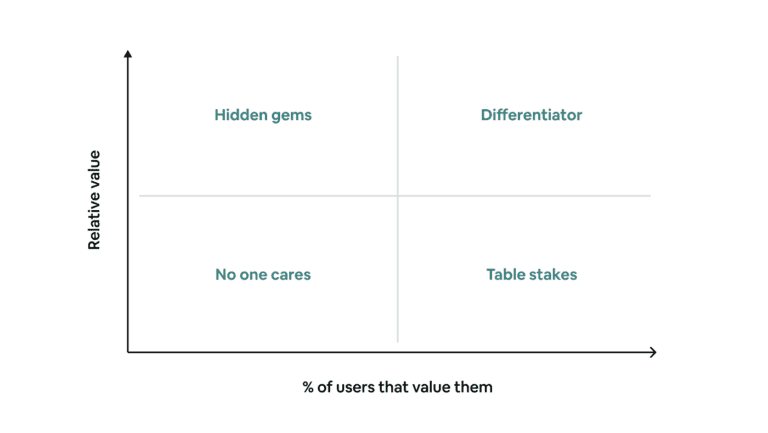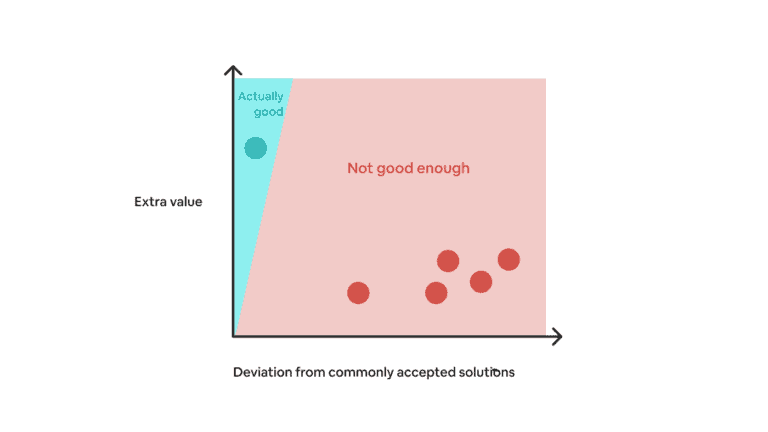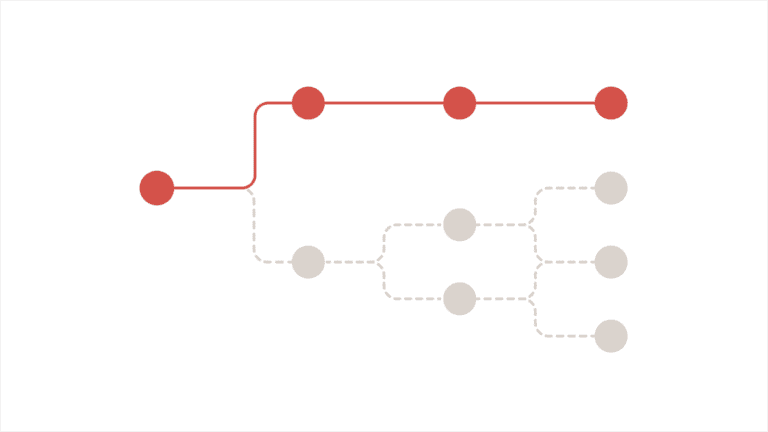If you are a product manager or founder, you need to know know the difference between…
- User research
- Actually understanding users
To understand users, you need to do research. But you can do a lot of research without ever understanding your users.
Most articles and courses can only teach you about 1 — what techniques there are, why they work, when to use which, and how to conduct them.
What they can’t teach you is 2 — how to interpret and synthesize raw signals into insights. This part will always be contextual.
Here’s a trap I see many product managers falling into these days:
They would spend 95% of their time planning their research, collecting data, cleaning data, and presenting the results…leaving only 5% of the time to discuss and think about what it all means.
These PMs think they’ve followed all the best practices to extract information from users, so they expect to get clear answers on what to do next. But as we all know, that’s rarely the case.
So what do they do next? More research → More data → More contradicting signals → More research → More processes → Less time to interpret the results→ Repeat.
The irony is that even when the answer is clear, they often choose to ignore it. Why? Because the answer is so obvious from just talking to five users that all the extra effort seems like a waste.
And when the leadership team finally says, “Alright, enough discovery. Time to act,” they tend to just take the research results at face value: “Okay, users say they want a faster horse, let’s build a faster horse.” This happens because, yet again, there wasn’t enough time to think it through.
You might read this and think, “Yeah, it’s better to launch MVP so you can quickly validate assumptions and iterate.”
But that’s missing the point.
The issue I’m highlighting isn’t limited to any specific research method. Whether you’re conducting discovery interviews, gathering feedback on an MVP, or running A/B tests, the heart of the issue is this: It’s not just about how well you can conduct the research, but also how well you understand the information collected.
The good news? If you focus on understanding your users, you’ll naturally get better at generating additional hypotheses, making your research efforts smarter and more efficient.




